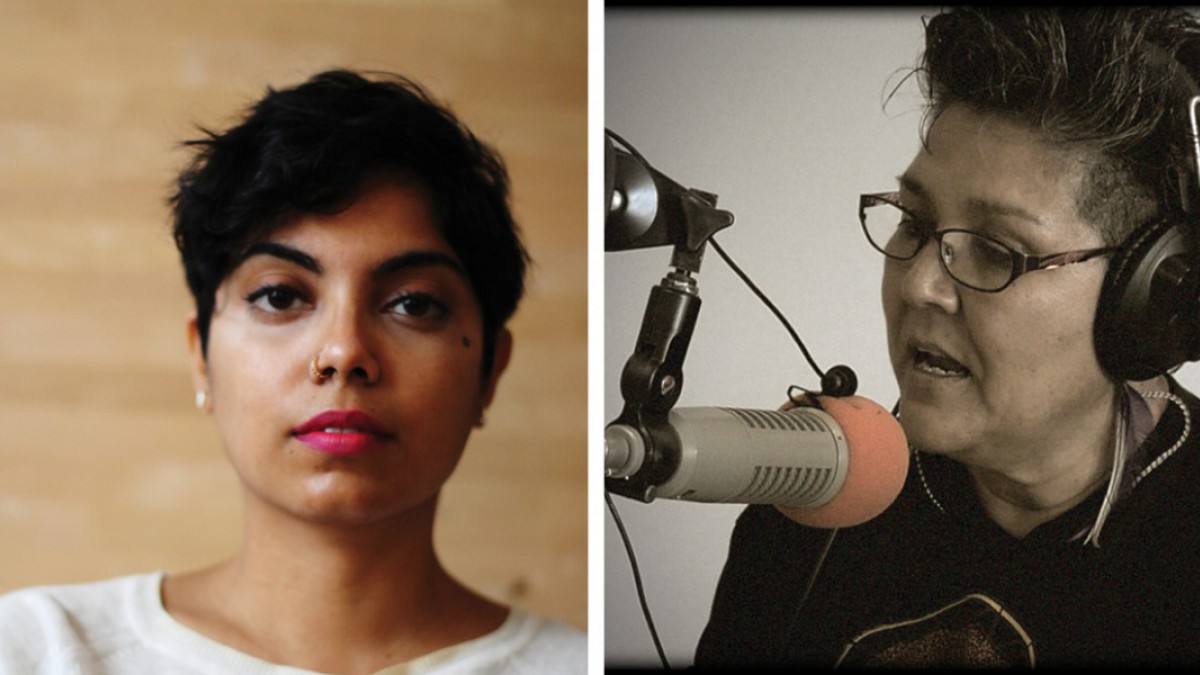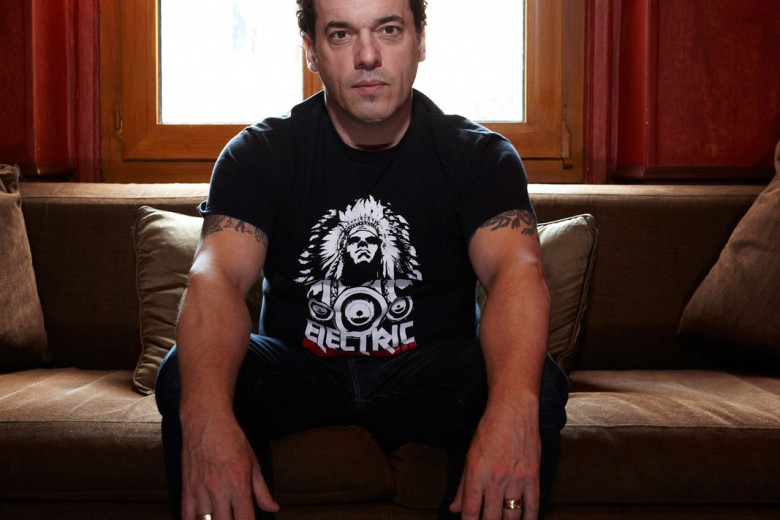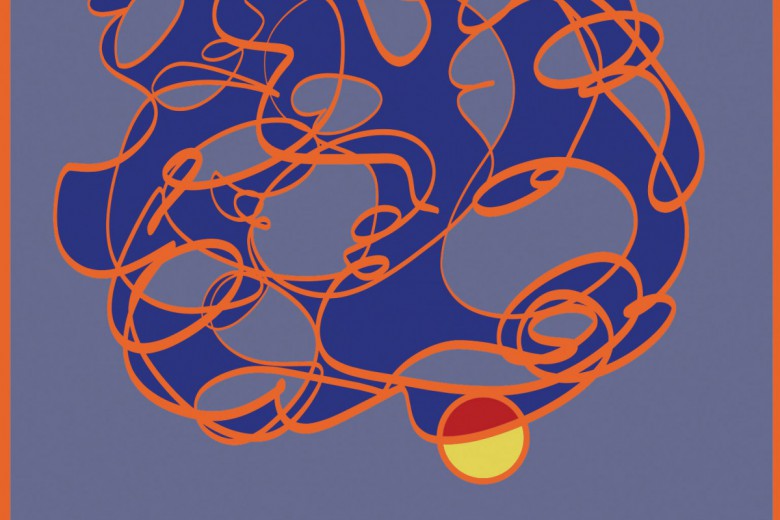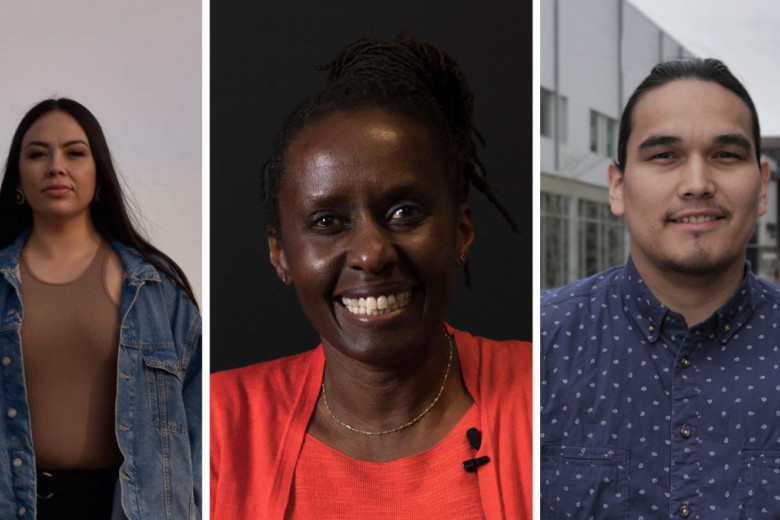This year marks Briarpatch’s seventh Writing in the Margins contest. Since the contest began, Briarpatch has showcased the principled creative political writing penned by brilliant and insightful writers who bring challenging social and environmental justice issues to life.
This year, Janet Rogers, a Mohawk/Tuscarora writer from Six Nations, will judge the poetry entries. Janet was born in Vancouver, B.C., lived in southern Ontario, and has been living as a guest on the traditional lands of the Coast Salish people (Victoria, B.C.) since 1994. Janet works in the genres of poetry, spoken word performance poetry, video poetry, and recorded poetry with music. She is also a radio broadcaster, documentary producer, and media and sound artist. Her literary titles include Splitting the Heart (Ekstasis Editions 2007), Red Erotic (Ojistah Publishing 2010), Unearthed (Leaf Press 2011), Peace in Duress (Talonbooks 2014), and Totem Poles and Railroads (ARP Books 2016). Her radio documentaries, Bring Your Drum: 50 years of Indigenous Protest Music and Resonating Reconciliation, won Best Radio at the imagineNATIVE Film & Media Arts Festival in 2011 and 2013.
Fathima Cader will judge the creative non-fiction entries. Fathima’s recent and upcoming publications include creative non-fiction in Hazlitt and Warscapes, poetry in Apogee Journal and Canadian Woman Studies: les cahiers de la femme, and criticism in The New Inquiry and The Funambulist. She practises law in Toronto, and teaches at the faculty of law at the University of Windsor, where she is also a senior fellow with the faculty’s Transnational Law & Justice Network. She is interested in all types of borders and in the migrations of war.
Briarpatch editor Tanya Andrusieczko caught up with Janet and Fathima to talk about creative writing in an age of urgent political change.
Both of you use your writing to leverage critiques of colonialism, systemic racism, and misogyny, but also to amplify the strategic and powerful resistance and resurgence in your communities. Has writing always been political for you, or have your motivations and processes in relation to your creative work changed over time?
JR: I began writing in 1996, two years after I moved to the West Coast. In those early years, I was doing what I think a lot of young or new writers do: a lot of navel gazing and using writing to process my own experiences and emotions. As I became more aware and involved with my own Indigenous identity and the cultural and political events around me, I began to use my perspective and responses to those events as inspiration for my work. In doing so, I was finding my voice.
With all the accelerating bleakness of the current political moment, I am so hungry now for beauty in the things I read and the things I write – beauty that is both jagged and generative, something to give us sustenance as we grit our teeth for the years ahead.
FC: My relationship to writing shifted when I began law school, which was also when I first became actively involved in migrant justice organizing and direct action. In both fora, writing was very much a means toward an end: in the former, writing was the primary mechanism for law’s self-perpetuation, while in the latter it was all about very specific forms of public education. I published my first feature essay during this time, right here in Briarpatch: “Tamil, tiger, terrorist?” In subsequent years, I would write often in this overtly explanatory vein. More recently, I’ve begun returning to the lyricism of my earlier writing. With all the accelerating bleakness of the current political moment, I am so hungry now for beauty in the things I read and the things I write – beauty that is both jagged and generative, something to give us sustenance as we grit our teeth for the years ahead.
Janet, in addition to being an accomplished poet, you’re also a visual artist, you write plays and stories, you perform spoken word and incorporate music into your work, and you’re a broadcaster and documentary producer. How do you know when a particular form will be the right one?
JR: I can say that all the media I produce I believe to be one and the same. All roads lead back to the story. So without insulting those who are born into a storytelling legacy and live their lives developing that craft, I have come to understand my practice, including film, sound art, performance, etc. to be different branches of the same tree.
Fathima, you’re a gifted writer and poet in addition to being a human rights and labour lawyer, a professor, and an activist. Can you describe how these roles interact with each other in the work you do?
FC: Diversity of tactics, no? The injustices we face are multifaceted; our resistance, in substance and in form, must be no less so. At base level, each of these roles you’ve identified has been about collectivizing social justice efforts – whether through the formation of worker collectives or through our gathering in classrooms to read together. I am grateful I get to move through these very different spaces, because it forces a degree of self-reflection I might not otherwise have. For example, as a union-side labour lawyer who spends much of her time in litigation, it is my activist friends who remind me of how limited and indeed how often harmful are the law’s answers to the questions of economic justice.
Indigenous, feminist, and anti-racist, Muslim-led resistance against oppression are at a critical point right now, which we’re seeing in the forms of principled fights against racialized policing and sweeping state surveillance, and in Idle No More, and anti-colonial movements that challenge settler colonialism and ongoing land dispossession. Important solidarity building between movements is also exposing the foundational reality that Canada is built on white supremacy. But systemic political change is slow and the long haul can feel exhausting for many activists. How do you stay motivated to keep working at the intersection of politics and creativity?
JR: The movements you have listed and the complexities that live inside all of them are not new. Only the names have changed. Haudenosaunee actor Gary Farmer told me that the truest political voice is that of the artist. So I understand that what I do, what I produce as a poet/artist, is ultimately producing a record of our time. I produce crops from the seeds that were planted before me, and my crops will produce seeds into the future. I make this work with a great sense of responsibility to convey Indigenous realities of the now for those who will reach back for inspiration.
The movements you have listed and the complexities that live inside all of them are not new. Only the names have changed.
FC: For me, the drive to creativity hasn’t been a question of motivation, but of personal need. While I regularly have long dry spells, at base I need to write. It is a physical urge. I feel unwell if I don’t. I write to put down on paper the terrain that I am navigating internally, and, having mapped this interiority, to momentarily transcend it. And I write in the knowledge that I am never alone, that all of us are groping for new ways forward.
What’s the most intriguing work you’ve read or seen recently, and why did it interest you?
JR: I am very excited about new Indigenous film and media work. I love that we have our own film festivals to celebrate our media voices on our own terms.
FC: I regularly revisit Dionne Brand’s 2006 long poem Inventory. Set during the early days of the U.S.-led 2003 invasion of Iraq, the narrator is glued, with increasing dismay, to the television. One atrocity follows another, some sketched out at a massive scale far away, others seemingly more benign and at home:
self righteous, let’s say it, fascism,
how else to say, border,
and the militant consumption of everything,
the encampment of the airport, the eagerness
to be all the same, to mince biographies
to some exact phrases, some
exact and toxic genealogy
This book is a reminder to the political writer that we cannot write for closure. It is a cataloguing of all the ways writers can and all the reasons writers should stay soft amid the onslaught of mass death.
happiness is not the point really, it’s a marvel,
an accusation in our time […]
there are atomic openings in my chest
to hold the wounded,
besides the earth’s own
coiled velocities, its meteoric elegance,
and the year still not ended,
I have nothing soothing to tell you
that’s not my job
my job is to revise and revise this bristling list
hourly
What advice do you have for writers who are considering submitting their creative non-fiction to this contest?
JR: Send your best.
FC: I would echo Leanne Betasamosake Simpson’s advice from two years ago: “Just write. Art isn’t a competition. Art isn’t a prize.” Write the thing you want to. Write the thing that keeps you up at night. Write because it hurts, and write because it hurts not to.
For all contest details, visit our Writing in the Margins page. Enter by December 1, 2017.







